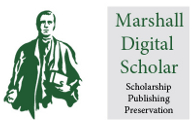Article Title
Abstract
King Philip’s War encouraged the construction of barbaric Native American typologies by puritan ministers through sermons and wartime histories. While select Algonquians in New England invested in a hybridized identity as a “Praying Indian” during the decades before the war, martial circumstances encouraged ministers to emphasize indigenous savagery, which outweighed earlier efforts to demonstrate the Christian piety of native converts. English texts outlining God’s providential wrath linked the contemporaneous war to Old Testament punishments meted out to the Hebrews. This typological reading of current events also superimposed the characteristics of heathen barbarians on Native Americans irrespective of their allegiance, offering an explanatory script for initial puritan losses and justifying harsh reprisals against dehumanized enemies. While Indian Christians struggled to support their English allies and demonstrate friendship and loyalty during the war, this hyperbolic rhetoric promoted patterns of violence and enmity which lasted beyond the immediate aftermath of the conflict and precluded later efforts to join New England’s religious community. The events of King Philip’s War and the religious impulses undergirding English understandings of barbarism laid the groundwork for eighteenth-century understandings of Indian savagery as an innate aspect of their nature.
First Page
24
Last Page
43
Creative Commons License

This work is licensed under a Creative Commons Attribution-NonCommercial-No Derivative Works 4.0 International License.
Recommended Citation
Michna, Gregory. "“A Prey to Their Teeth”: Puritan Sermons and Ministerial Writings on Indians During King Philip’s War." Sermon Studies 1.1 (2017) : 24-43. https://mds.marshall.edu/sermonstudies/vol1/iss1/3
